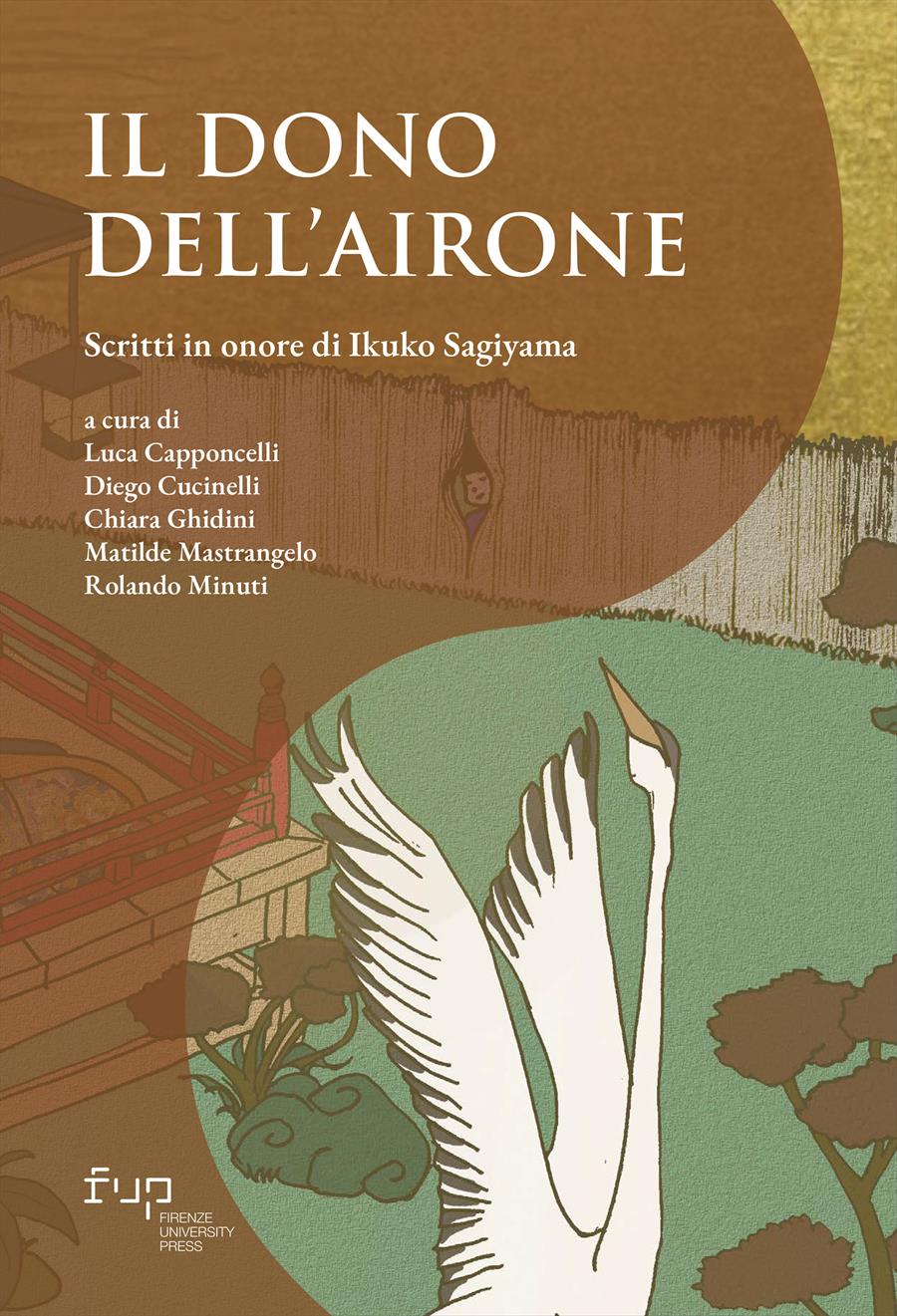- Il dono dell’airone
- Edited by Luca Capponcelli, Diego Cucinelli, Chiara Ghidini, Matilde Mastrangelo, Rolando Minuti
Suoni d’amore e tenebre di disonore. Suono e cecità nel teatro nō
- Claudia Iazzetta
- © 2024 Author(s) |
- CC BY 4.0
- DOI: 10.36253/979-12-215-0422-4.16
In nō plays, the senses of hearing and sight are closely interrelated. The plays often delve into the complexities of human connection and communication, especially in circumstances where physical presence is hindered. One recurring theme is the use of sound as a bridge between individuals who are separated by physical barriers, preventing them from meeting face-to-face. In these instances, characters often resort to sound to attract the attention of the distant person, even if their calls remain unheard. This creates a poignant sense of longing and unfulfilled connection. Conversely, characters who are blind hold a prominent role in nō performances. Whether they were born blind or lost their sight later in life, these characters epitomise the power of sound as a means of interaction with the world. In their state of visual isolation, they rely on auditory cues to engage with the external environment, fostering a connection through the act of listening and being heard, even before the exchange of sight occurs. Among the diverse range of nō plays, two pieces stand out for their exploration of sound and its emotional undercurrents: Kinuta and Aya no tsuzumi. These performances offer a unique lens through which to delve into the themes of resentment and the erosion of rationality, as sound becomes a conduit for these intense emotions. Furthermore, characters like Semimaru, Yorobōshi, and Kagekiyo each have their own stories that underscore the prevalent themes of loneliness and abandonment often associated with blindness. These characters draw attention to the societal stigma and dishonour that historically accompanied this impairment, evoking empathy and introspection in the audience. In summary, nō plays masterfully weave together the senses of hearing and sight to create narratives that explore human emotions, connections, and the nuances of communication. Through characters who rely on sound for connection and those who navigate the world without sight, these plays offer profound insights into the human experience and the power of sensory perception.
- Keywords:
- Hearing,
- Sight,
- Resentment,
- Isolation,
- Forsaking,
University of Naples L'Orientale, Italy
- Katō, Eileen, trad. 1977. “Kinuta.” Monumenta Nipponica 32 (3): 332-46.
- Koyama, Hiroshi, et al., a cura di. 1975. Yōkyokushū. 2 voll. Nihon koten bungaku zenshū 33-34. Tokyo: Shōgakukan.
- Matsuo, Kenji. 2007. A History of Japanese Buddhism. Kent, UK: Global Oriental.
- Omote, Akira, e Katō, Shūichi, a cura di. 1974. Zeami Zenchiku. Nihon shisō taikei 24. Tokyo: Iwanami shoten.
- Omote, Akira, e Yokomichi, Mario, a cura di. 1960. Yōkyokushū. 2 voll. Nihon koten bungaku taikei 40-41. Tokyo: Iwanami shoten.
- Sagiyama, Ikuko, trad. e cura di. 2000. Kokin Waka Shū. Raccolta di poesie giapponesi antiche e moderne. Milano: Ariele.
- Sanari, Kentarō, a cura di. 1982. Yōkyoku taikan. 7 voll. Tokyo: Meiji shoin.
- Tyler, Royall, trad. e cura di. 1992. Japanese Nō Dramas. Londra: Penguin Books.
Chapter Information
Chapter Title
Suoni d’amore e tenebre di disonore. Suono e cecità nel teatro nō
Authors
Claudia Iazzetta
Language
Italian
DOI
10.36253/979-12-215-0422-4.16
Peer Reviewed
Publication Year
2024
Copyright Information
© 2024 Author(s)
Content License
Metadata License
Bibliographic Information
Book Title
Il dono dell’airone
Book Subtitle
Scritti in onore di Ikuko Sagiyama
Editors
Luca Capponcelli, Diego Cucinelli, Chiara Ghidini, Matilde Mastrangelo, Rolando Minuti
Peer Reviewed
Number of Pages
390
Publication Year
2024
Copyright Information
© 2024 Author(s)
Content License
Metadata License
Publisher Name
Firenze University Press
DOI
10.36253/979-12-215-0422-4
ISBN Print
979-12-215-0421-7
eISBN (pdf)
979-12-215-0422-4
Series Title
Connessioni. Studies in Transcultural History
Series ISSN
2975-0393
Series E-ISSN
2975-0261
